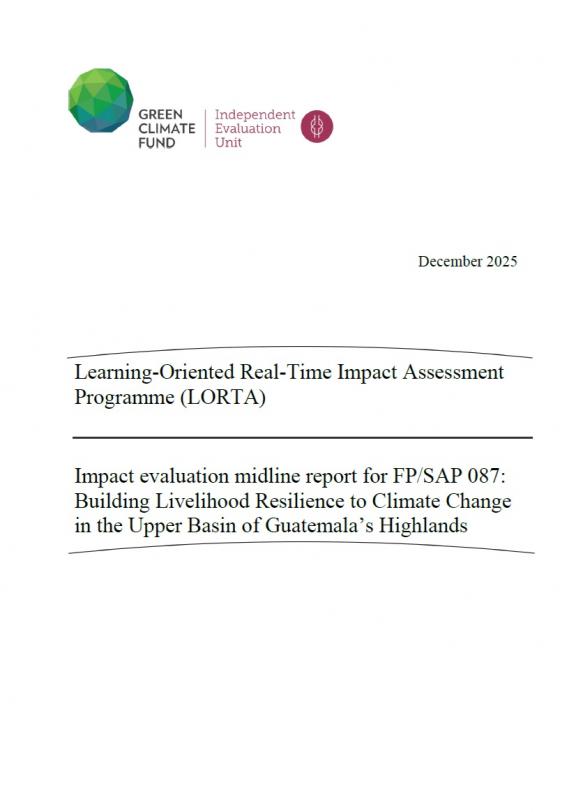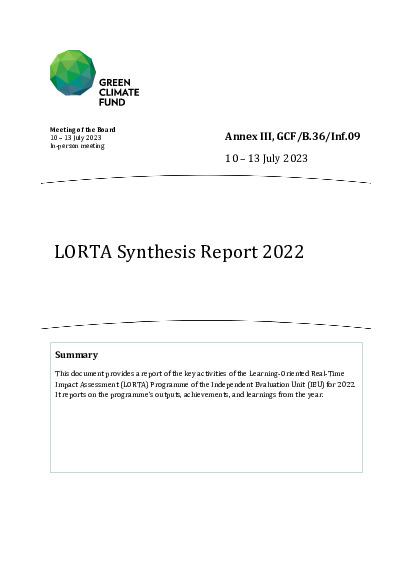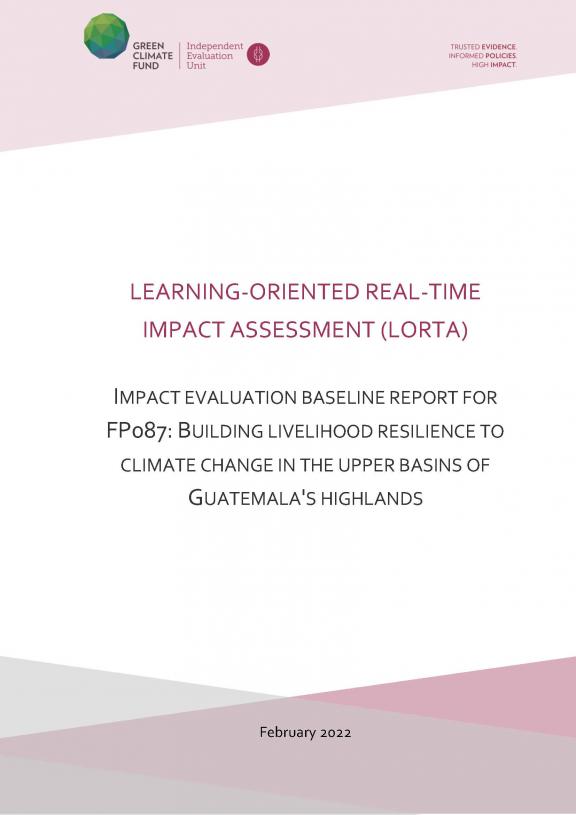FP087
Building livelihood resilience to climate change in the upper basins of Guatemala’s highlands
Building livelihood resilience to climate change in the upper basins of Guatemala’s highlands
Climate-smart watershed management: This evaluation assesses the impact of improved land-use practices, community grants and an early warning system in target watersheds in Guatemala’s highlands. Climate change is affecting the intensity of precipitation, the duration of dry periods, and temperature. The individuals living in the highlands are small scale agricultural producers who rely on natural resources for subsistence and their livelihoods. The project, implemented by the International Union for Conservation of Nature (IUCN), aims to improve the resilience and livelihoods of the population, strengthen their capacity for adaptation, and reduce their exposure to climate risks through the use and application of tools, information and practices. The evaluation provides insights on the effectiveness of restoration of watersheds through sustainable land-use systems, while improving resilience and livelihoods of the target population.
-
TopicEcosystem & reforestation
-
Project componentImproved water recharge and productivity in response to climate change in Guatemalan Highlands
-
Impact evaluation designDifference-in-Difference (DiD)
-
Target beneficiariesFemales make up 30% of the 132,000 direct beneficiaries. The total sample size for baseline data collection is 1,486 households, distributed into 21 treatment (758 households) and 13 control (728 households) micro watersheds.
Timeline
Onboarded to LORTA
Jul 2019
Baseline data collected
Jun 2021
Baseline report published
Feb 2022
Endline data to be collected
Jul 2027
Endline report to be published
Jul 2028
One region
- Latin America and the Caribbean
One country
- Guatemala
Reports

Impact Evaluation Midline Report for FP/SAP 087: Building Livelihood Resilience to Climate Change in the Upper Basin of Guatemala’s Highlands
17 Dec 2025
This report presents the midline findings of the project "Building Livelihood Resilience to Climate Change in the Upper Basins of Guatemala’s Highlands," implemented since 2021 to strengthen ecosystem and water management, diversify livelihoods, and enhance household resilience to climate-related shocks. The evaluation applies a quasi-experimental design and draws on data from 1,256 households across treatment and comparison micro-watersheds.

LORTA Synthesis Report 2022
19 Jun 2023
This document provides a report of the key activities of the LORTA Programme for 2022. It is Annex III of a report of the key activities of the Independent Evaluation Unit (IEU) for the period of 1 January to 30 April 2023. It reports on the IEU’s outputs and achievements in line with its Board-approved work plan for 2023.

Impact Evaluation Baseline Report for FP087: Building livelihood resilience to climate change in the upper basins of Guatemala's highlands
23 May 2022
This document is the baseline report for the impact evaluation of the project FP087 "Building livelihood resilience to climate change in the upper basins of Guatemala"s highlands". The report outlines the theory of change of the project intervention as well as the evaluation questions and indicators.
Impact
Results from the baseline data collection conducted in 2021 by the IUCN and LORTA teams provided comparative analysis of the key indicators between project beneficiaries and non-beneficiaries. The baseline results indicated that both groups are similar in key characteristics: households and communities in both groups have statistically similar vulnerabilities, gaps and needs in enhancing their climate resilience.
Conversely, agricultural practices present some differences: sampled households in the intervention area showed more experience in agroforestry systems and silvopastoral systems on average than the households in the non-intervention area at baseline.
To be shared in 2027.
To be shared in 2027.
Details
The project: the FP087 project focuses on reducing the impacts of climate change on the hydrological cycle in target watersheds in Guatemala’s highlands through improved land-use practices, community grants and an early warning system. The project aims to improve the resilience and livelihoods of the population, strengthen their capacity for adaptation, and reduce their exposure to climate risks through the use and application of tools, information and practices that are either completely or partially climate related.
Impact evaluation: LORTA’s impact assessment focuses on evaluating two sub-components of the project, which assess micro watershed management, ecosystem-based adaptation training and early warning systems on the group of vulnerable communities in Guatemala.